Avocado and Cannabis Growers Struggle over Insecticides
The Unintended Consequences of Growing Pot Next to Orchards That Spray
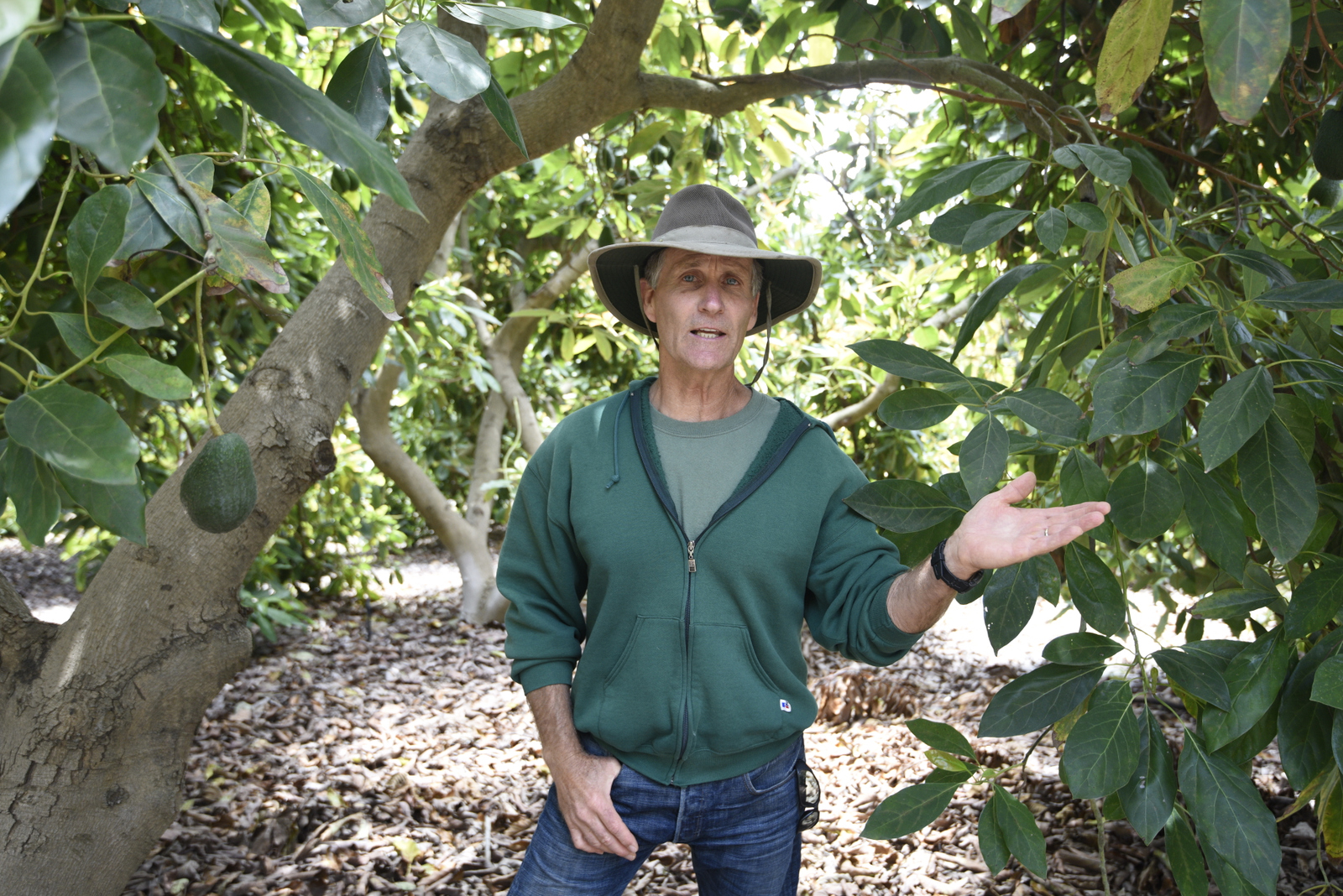
Scott Van Der Kar, an avocado grower in the Carpinteria foothills, thought he was immune to the cannabis controversy that has roiled neighborhoods closer to town.
Van Der Kar’s 50 acres on Shepard Mesa Road, where he also has lemons and cherimoyas, have been unaffected by the skunk-like stench from cannabis greenhouses and the semi-trailer truck traffic that has triggered a barrage of opposition in the valley below. Even as the Carpinteria Valley became a mecca for commercial cannabis cultivation, the 70-year-old avocado industry was conducting business as usual … until now.
“The cannabis industry has forced significant impacts on the community and expected the community to adjust,” Van Der Kar said. “Once it starts reaching into the orchard business, all of a sudden it gets personal.”
Last month, he said, avocado growers were “broadsided” by the news that the Oxnard-based pest control companies that treat their crops would no longer spray the insecticides that work best on avocados, for fear of contaminating cannabis crops with the slightest trace of residue and getting sued.
“This has come to the forefront so quickly that people are turning every which way to try to figure out what to do,” Van Der Kar said. “We’re reeling from it.”
The growers’ quandary has sent county officials scrambling to find a solution, and there’s not a moment to lose. Spraying takes only a couple of hours or a couple of days, but the window for next year’s crop is now through June, to prevent the trees from defoliating and the avocados from turning brown, like Russet potatoes.
“I understand why they’re so freaked out,” said county Supervisor Das Williams, who represents the Carpinteria Valley. “Normally, I support the strongest regulation against pesticides, but the state regulations for cannabis are ridiculous and impractical. Even the organic insecticides are not allowed.”
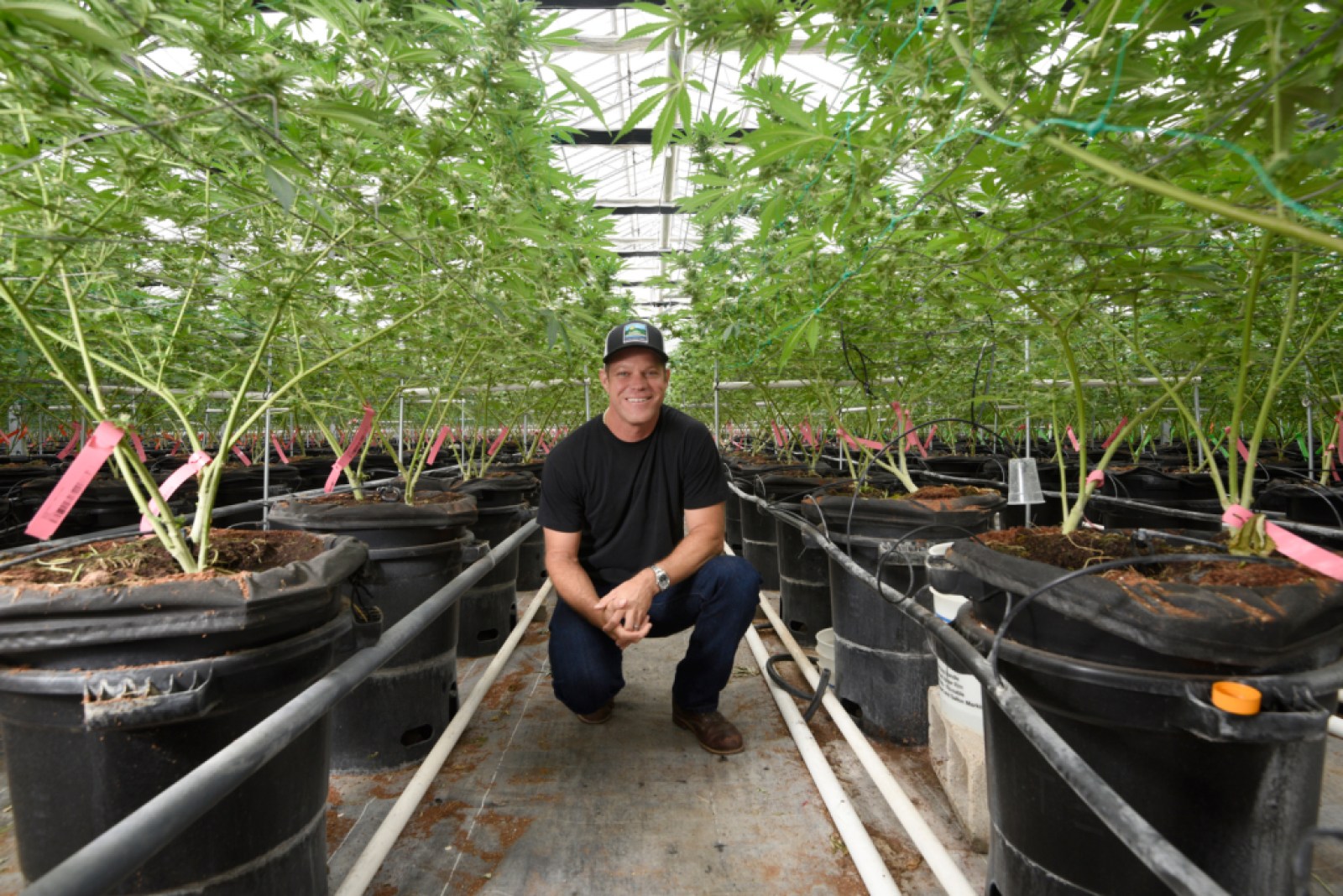
This week, at Williams’ urging, the board of directors of the Cannabis Association for Responsible Producers, or CARP Growers, representing 20 out of 27 legal commercial cannabis operations in the valley, announced that its members would sign an agreement not to sue the avocado growers or the pest control companies during two weeks this spring while the orchards are sprayed. The dates are still to be determined. Only organic pesticides would be covered; the most common one is made from a naturally-occurring organism in the soil.
“We’re open and willing to setting aside a period of time for agreed-on applications of pesticides on avocado trees,” said Graham Farrar, the CARP Growers president. “We’re hoping and trying to make the adjustments we can to work cooperatively.”
Farrar, who owns Glass House Farms, a medium-sized greenhouse operation for cannabis on Casitas Pass Road, said he was hopeful that an agreement could be signed this month. As part of the deal, the county Agricultural Commissioner’s office would provide monitors to help ensure there is no pesticide “drift” beyond orchard boundaries.
“Emotions are high about this, but we may have a solution,” Williams said. “The future of avocados in the Carpinteria Valley is very important. We need multiple crops, not one.”
Out of Our Control
Van Der Kar, one of the few Carpinteria farmers earning 100 percent of his income from farming, said the agreement would help him with his organic avocados, but not his conventional, or non-organic, avocados and lemons. They require a pesticide that the proposed agreement wouldn’t cover. The alternative, Van Der Kar said, is to use a pesticide that is less effective, requires multiple applications and costs more money – or not spray at all, and risk spoiling those crops.
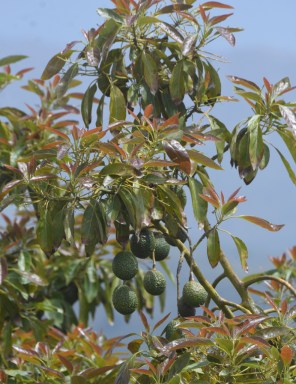
“It’s certainly better than what we were thinking we were faced with,” he said of the proposed agreement. “It’s a short-term solution for some growers.”
It will be difficult to set a time for spraying that suits all growers because every orchard is different, and so are fog conditions in the spring, Van Der Kar said. Even organic sprays typically have to be applied more than once to kill successive generations of insects, he said.
Having weathered droughts, heat waves and fire – he lost 40 acres of avocados in Ventura County during the Thomas Fire of 2017 – Van Der Kar said cannabis is “one more thing that seems to be out of our control.”
“Sure, the cannabis growers want us to be their friends, but what’s in it for us?” he asked. “We’re altering how we do our businesses and adding to our costs so that they can grow this crop which does not fall under my definition as true agriculture. We’re growing food and they’re growing a drug.”
The Most Regulated Crop
There are 2,200 acres of avocado orchards in the Carpinteria Valley; the county is limiting cannabis cultivation and processing business licenses to 186 acres. To date, county officials said, 36 cannabis growers have applied for land-use permits on 228 acres in the valley, so not all permit applicants will receive a business license. Of the 36 applicants, 27 are already operating in the valley, under state temporary or provisional licenses.
The cannabis growers like the idea of having county monitors on hand while the avocado orchards are sprayed because they themselves are highly regulated, Farrar said. They will close the vents on their greenhouse roofs and draw their shade curtains, or harvest their crop before the spraying begins.
As to the requirement for organic pesticides, Farrar said it was made in the spirit of compromise.
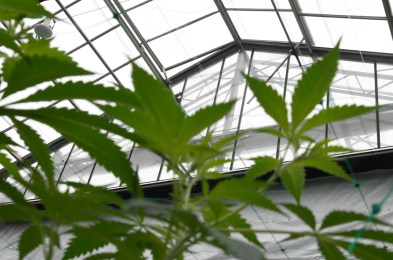
“The pressure that we’re under as cannabis farmers can be used to pressure other farmers to farm in an organic way,” he said. “Let’s make everybody do a better job. This level of oversight and regulation is something agriculture is not used to. Farming on all sides has to evolve.”
California voters legalized marijuana in 2016. In the Carpinteria Valley, cannabis has now replaced about half of the flower greenhouse industry, and, according to Farrar, it is “the most regulated crop in the history of agriculture.” Members of CARP Growers use beneficial insects on their crops, and zero pesticides, he said.
The state regulations for cannabis are so strict that last year, when a cannabis operator on Casitas Pass Road sprayed for ants in his office, he had to destroy his entire crop because the ants carried the spray into his greenhouse.
Of course, illegal cannabis greenhouses are unregulated. Since October, the county has shut down 30 illegal operations, five of them in the Carpinteria Valley. Just two weeks ago, county Sheriff’s deputies destroyed 35,000 plants in an illegal cannabis greenhouse on Via Real.
Major Breakthrough
In the end, the buck stops with the owners of Oxnard pest control companies, many of whom have forged decades-long friendships with their clients in the Carpinteria Valley. They must abide by the regulations: when it comes to the pesticides most commonly used on avocados, the state allows only one part per billion on cannabis.
“A claim by some of those high-priced cannabis operations could put us out of business,” said Rob Scherzinger, the founder and manager of Aspen Helicopters, Inc., an Oxnard company that has been spraying avocados in the Carpinteria Valley for 35 years. “We just can’t take the chance.”
Scherzinger said his company was in a “wait-and-see” mode regarding an agreement with the cannabis growers.
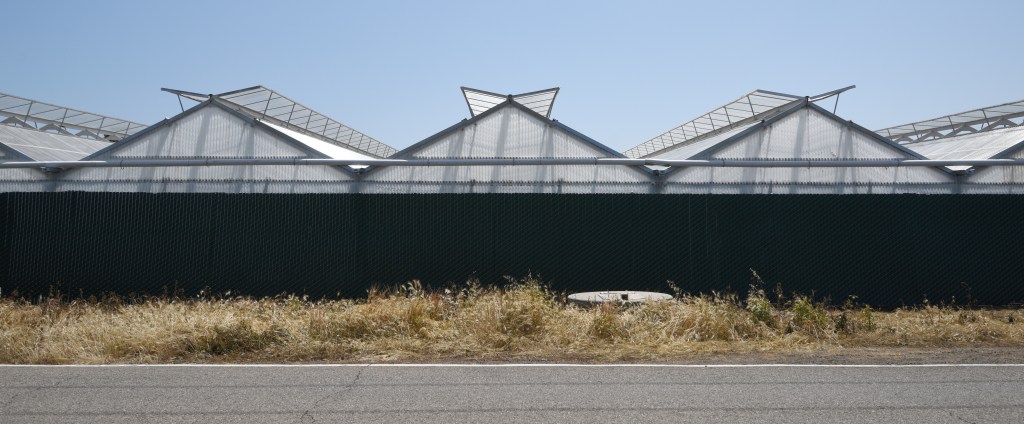
“We’re very encouraged, but very guarded also,” he said. “We want to make sure it’s pretty bulletproof. We’re dealing with a lot of attorneys here.”
Terry Nelson, manager of the Oxnard Pest Control Association, called the proposed agreement “a major breakthrough,” but said he would like to see all of the cannabis growers on board.
“I’m excited about it, and I think it would be a good solution,” he said. “They all have to sign it, or we won’t accept it. We won’t spray anywhere near the cannabis growers who don’t sign.”
Without an agreement, Nelson said, he’d be willing to spray if there is a mountain between an avocado orchard and the nearest cannabis greenhouse.
“You put a cannabis operation in an agricultural area, it’s an absolute nightmare,” he said. “That’s one thing the politicians have been shortsighted on.”
Melinda Burns is a freelance journalist in Santa Barbara.

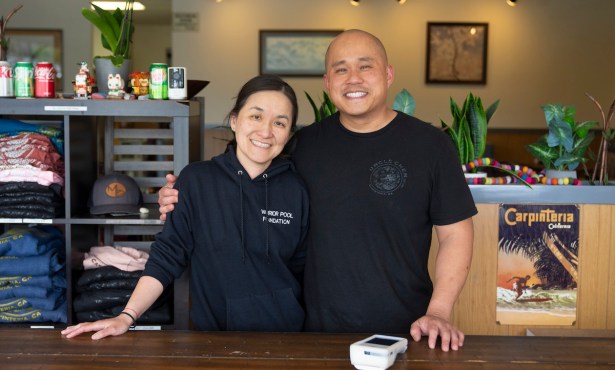
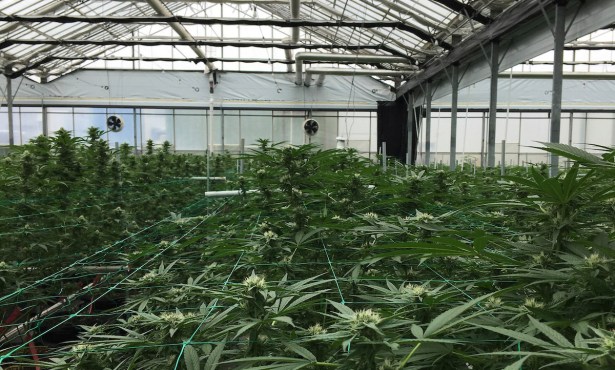

You must be logged in to post a comment.